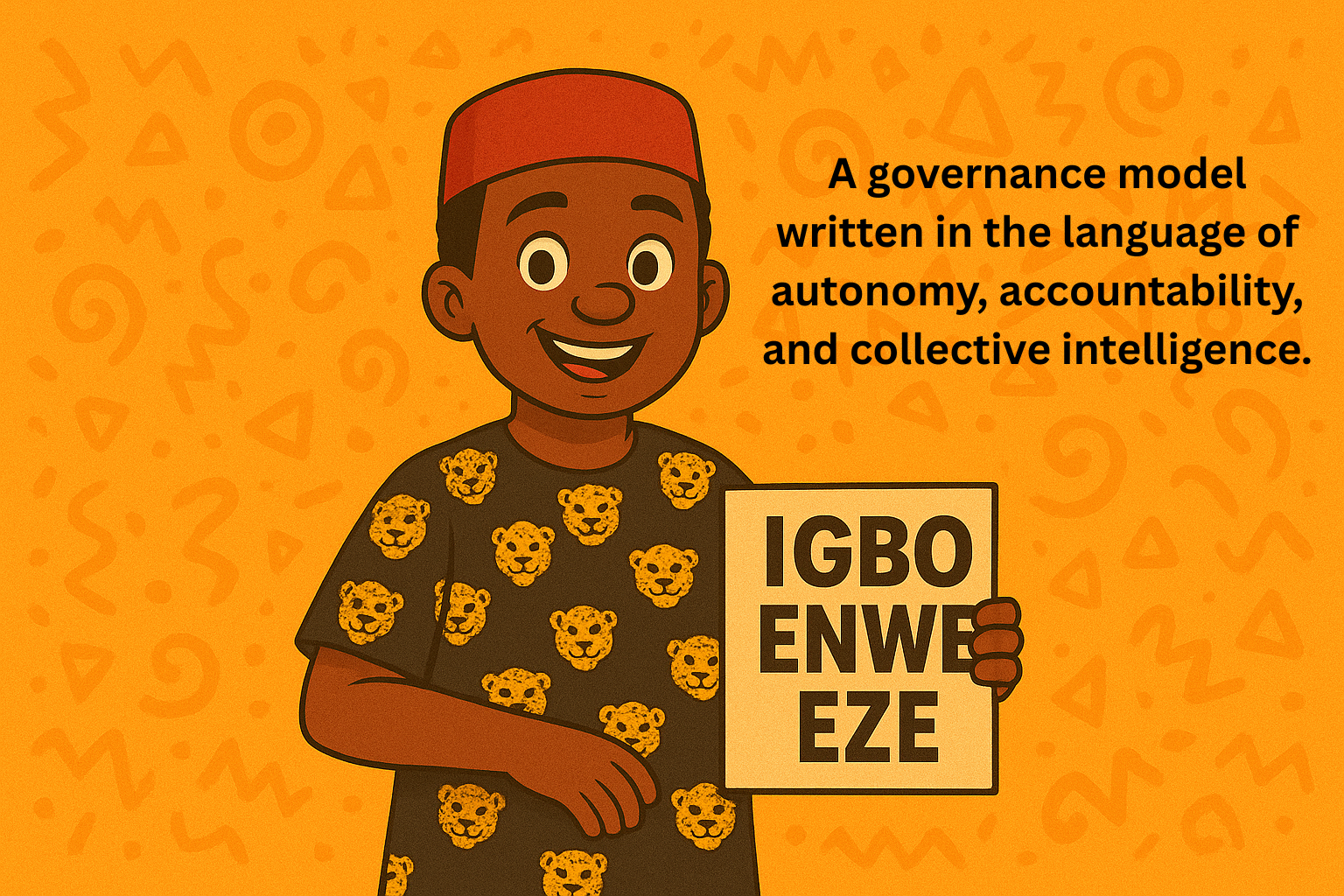Modern culture loves the word disruption. Startups worship it. Innovators market it. Politicians misuse it. But long before Silicon Valley learned to “move fast and break things,” the Igbo people had already built a civilisation around a quieter, deeper kind of disruption – one rooted not in chaos, but in distributed authority and earned respect.
“Igbo enwe eze” (the Igbo have no king) wasn’t a declaration of anarchy. It was a design choice. A governance model written in the language of autonomy, accountability, and collective intelligence. It was an operating system that said: power is not a birthright; it’s a performance metric.

Meritocracy Before the Word Existed
In Igbo society, leadership wasn’t blindly inherited; it was invited. You led because you had ikenga, the spiritual and personal capacity to shape outcomes through courage, wisdom, and integrity. You didn’t need a title to make an impact; you needed proof of work derived from wisdom and the willingness to make a difference. That’s the same logic driving open-source software, decentralised communities, and the digital economy of today. The Igbo spirit of self-validation through impactful contribution mirrors how great ideas rise in the digital world: by merit, not by mandate.
The Decentralised Dream
Each Igbo village governed itself, an ecosystem of mini-republics bound by consensus, not coercion. That’s not disorder; it’s elegant decentralisation. Imagine if modern governance worked like a network of blockchain smart contracts – local nodes agreeing, adapting and self-correcting. That’s Igbo enwe eze in motion: distributed power with collective accountability. It’s a political blockchain that predates actual blockchain.
The Human Protocol of Innovation
Disruption, for the Igbo, was never about tearing down systems for ego. It was about constant reconfiguration for growth. Markets, kinship systems, and apprenticeship networks. They evolved dynamically because innovation was built into the culture.
Every Igbo child learns to ask “Gịnị mere?”—What happened? It’s not idle curiosity. It’s a call to understand systems, trace causes, and build better solutions. That’s not rebellion, it’s design thinking.
Igbo Enwe Eze is not rebellion; it’s design thinking.
Lessons for the Digital Century
In an age addicted to titles, followers, and likes, Igbo enwe eze whispers a counterculture truth: you don’t need a crown to lead, just clarity and impactful contribution. When every person sees themselves as sovereign, responsibility scales. Communities innovate. Hierarchies shrink. What emerges isn’t chaos; it’s co-creation.
Igbo Enwe Eze is the architect of innovation, resilience and co-creation
Conclusion
Igbo enwe eze isn’t about refusing to have one king. It’s about refusing limits. It’s an ancestral hack that says true power is not centralised – it’s earned, shared, and evolving.
Let’s rebuild the future with that same spirit. Whether you’re coding, designing, mentoring, or leading: practice Igbo enwe eze. Challenge hierarchy. Reward merit. Build systems that trust people to rise by what they contribute.
Because disruption without wisdom is noise. Igbo enwe eze is about timeless innovation.


Leave a Reply